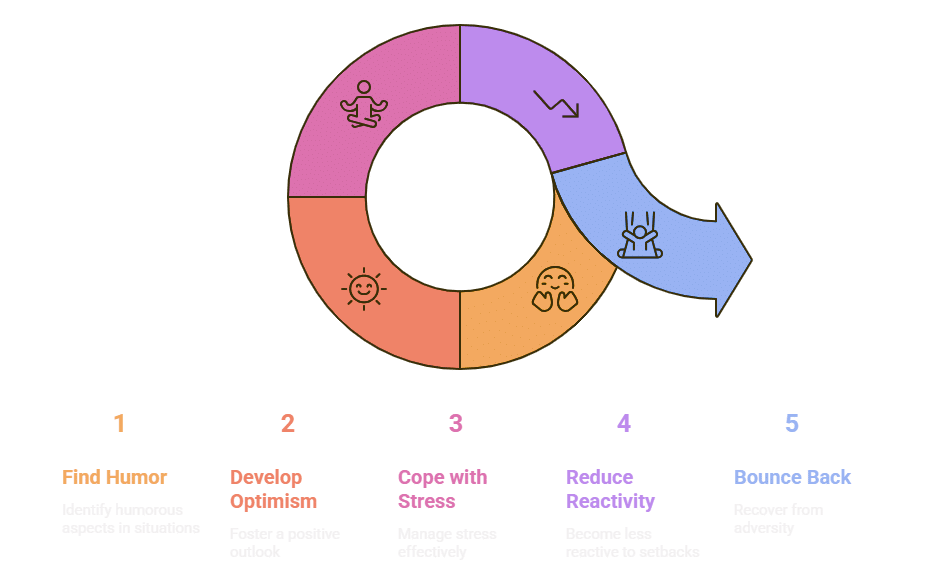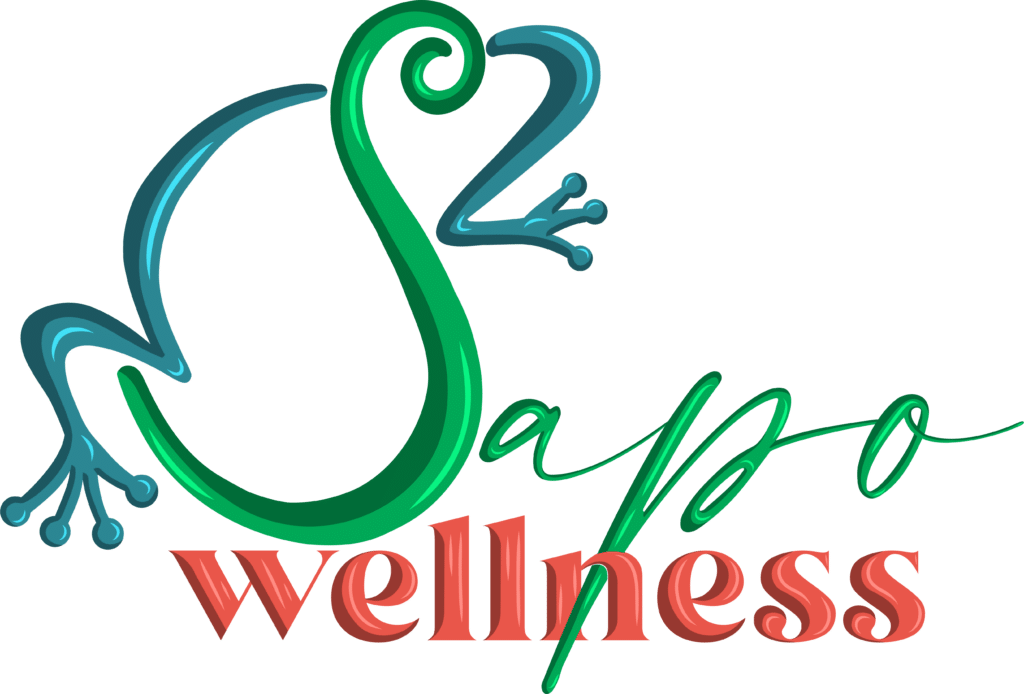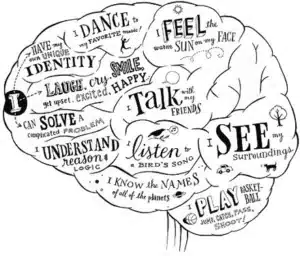We’ve all heard that laughter is the best medicine, but what if there’s actual science backing up this age-old wisdom? A 2015 study in Frontiers in Psychology revealed that when we use humor to reframe negative experiences, we’re not just distracting ourselves… we’re fundamentally changing how our brains process and store these difficult moments. Yay neuroplasticity!
The Power of the Funny
Think of your emotional response system like a barbell loaded with stress. When something negative happens, you add weight to the barbell. With resilience, you’re able to perform rep after rep. Without effective coping though, pretty soon that weight feels impossibly heavy.
Most of us try to manage by gritting our teeth and pushing through with pure willpower, essentially trying to reason our way back to baseline. But is this really the most effective approach?
Turns out, no. No, it isn’t. Locating your funny bone is!
This study (alongside plenty of other research) suggested that humorous reappraisal (i.e., finding ways to lighten the negativity of situations) is remarkably more effective than rational thinking alone at reducing negative emotions. While both approaches can lower your stress levels, only humor actually shifts you from negative to positive emotional territory, immediately. However, using humor doesn’t mean lowering your standards, accepting mediocrity or responsibility, or self-deprecating for funsies. It also doesn’t mean deflecting from uncomfortable feelings. It does mean recognizing the absurdity in our human tendency to catastrophize single failures.

While I’m thinking about it, let’s talk dark humor (I’m looking at you, first responders, nurses, teachers… pretty much anyone who faces the heavier sides of humanity day to day). The use dark humor is not about making light of serious situations to be crass. It’s about finding moments of levity that help you process and move forward from difficulties.
The Memory Advantage
Perhaps even more intriguing is how humor affects our memory of negative events. Both humorous and rational reappraisal reduced participants’ ability to freely recall negative experiences later. Basically, humor gets bad memories to become less likely to intrude into your head while you’re trying to sleep or focus on something else.
Here’s where humor shows its unique advantage, though: while rational thinking weakened the overall memory storage, humorous reappraisal left recognition memory completely intact. With humor, a memory is still totally preserved, allowing you to recall it completely… just without the negative vibe to it. This helps to increase resilience while leaving the memory less likely to interrupt you during quiet moments.
Knowing this is incredibly advantageous, especially to those who identify as high-performing, Type-A personalities, or those who work in demanding careers. When you encounter a similar situation in the future you can still access the full memory and learn from it. But in your day-to-day life, that negative experience won’t keep replaying on a loop.
How It Actually Works to Build Resiliency
The researchers discovered that humorous reappraisal operates through sophisticated cognitive processing. This is some high level, pinky-out fancy kind of processing. Instead of broadly suppressing the negative experience (which doesn’t really work anyway), humor helps you focus on specific aspects of what happened, including finding absurd, ironic, or amusing elements within the situation itself. You find the silver lining, if you will.
For my fellow perfectionist personalities who tend to endlessly replay their mistakes: humor interrupts that rumination cycle while preserving the learning.
For first responders processing traumatic calls: humor provides emotional relief without erasing important operational lessons. Bonus points if you and your crew bring some humor into the after-action briefings, too.
For athletes: it transforms training failures from identity threats intostories worth telling (and lessons to build upon next time you train).
In essence, humor is a beautiful tool for resilience.
The Takeaway
The science confirms what resilient people across all walks of life have discovered: finding humor in difficulties isn’t about being flippant or unprofessional. It’s about engaging one of the most effective emotion regulation strategies available while maintaining your ability to learn and improve.
So how does this apply to you?
The next time you’re facing a setback try reframing it: “How will I tell this story when I’m talking someone else through the same thing?” or “What would make this experience absurdly relatable?”
You’re not minimizing real challenges or avoiding accountability. You’re not just being a jerk. You’re using one of the brain’s most sophisticated coping mechanisms to process difficulty in a way that protects your mental health while keeping you sharp for next time.
After all, you’re going to remember the tough moments anyway… wouldn’t you rather remember them with a touch of funny instead of resentment?
Let’s get to work.
Kugler, L., & Kuhbandner, C. (2015). That’s not funny! – But it should be: effects of humorous emotion regulation on emotional experience and memory. Frontiers in Psychology, 6, Article 1296. https://doi.org/10.3389/fpsyg.2015.01296






